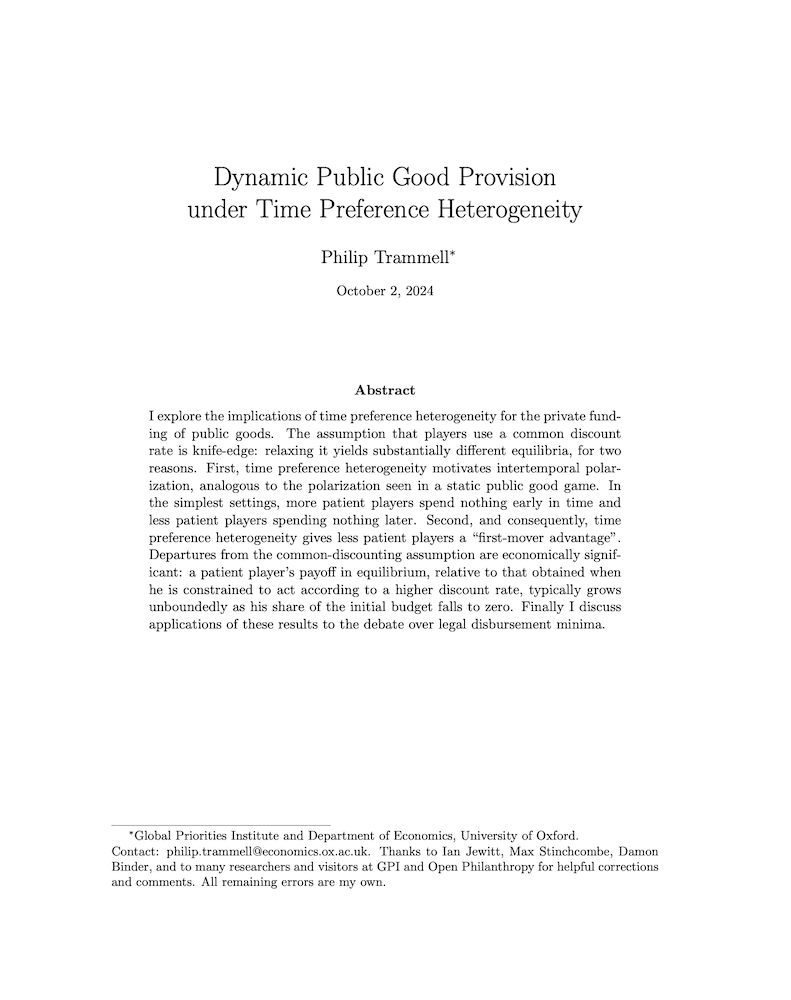Dynamic public good provision under time preference heterogeneity
Philip Trammell (Global Priorities Institute and Department of Economics, University of Oxford)
GPI Working Paper No. 9-2021
I explore the implications of time preference heterogeneity for the private funding of public goods. The assumption that players use a common discount rate is knife-edge: relaxing it yields substantially different equilibria, for two reasons. First, time preference heterogeneity motivates intertemporal polarization, analogous to the polarization seen in a static public good game. In the simplest settings, more patient players spend nothing early in time and less patient players spending nothing later. Second, and consequently, time preference heterogeneity gives less patient players a “first-mover advantage”. Departures from the common-discounting assumption are economically significant: a patient player’s payoff in equilibrium, relative to that obtained when he is constrained to act according to a higher discount rate, typically grows unboundedly as his share of the initial budget falls to zero. Finally I discuss applications of these results to the debate over legal disbursement minima.
Other working papers
Existential risks from a Thomist Christian perspective – Stefan Riedener (University of Zurich)
Let’s say with Nick Bostrom that an ‘existential risk’ (or ‘x-risk’) is a risk that ‘threatens the premature extinction of Earth-originating intelligent life or the permanent and drastic destruction of its potential for desirable future development’ (2013, 15). There are a number of such risks: nuclear wars, developments in biotechnology or artificial intelligence, climate change, pandemics, supervolcanos, asteroids, and so on (see e.g. Bostrom and Ćirković 2008). …
The Hinge of History Hypothesis: Reply to MacAskill – Andreas Mogensen (Global Priorities Institute, University of Oxford)
Some believe that the current era is uniquely important with respect to how well the rest of human history goes. Following Parfit, call this the Hinge of History Hypothesis. Recently, MacAskill has argued that our era is actually very unlikely to be especially influential in the way asserted by the Hinge of History Hypothesis. I respond to MacAskill, pointing to important unresolved ambiguities in his proposed definition of what it means for a time to be influential and criticizing the two arguments…
The cross-sectional implications of the social discount rate – Maya Eden (Brandeis University)
How should policy discount future returns? The standard approach to this normative question is to ask how much society should care about future generations relative to people alive today. This paper establishes an alternative approach, based on the social desirability of redistributing from the current old to the current young. …

